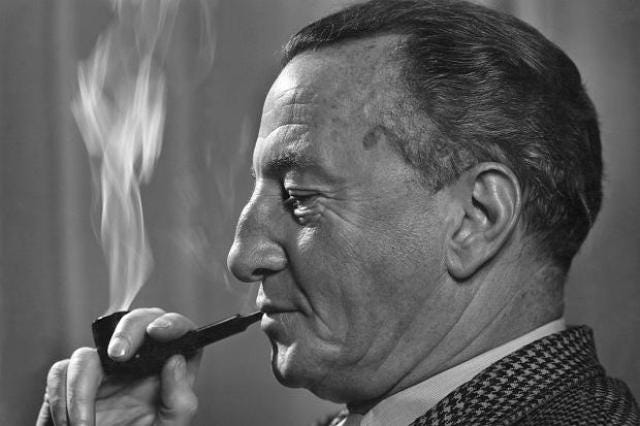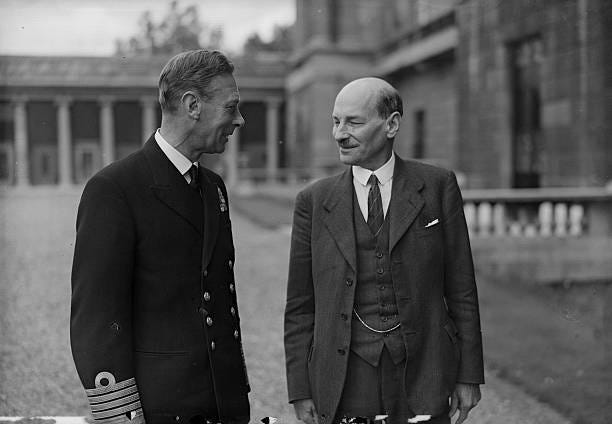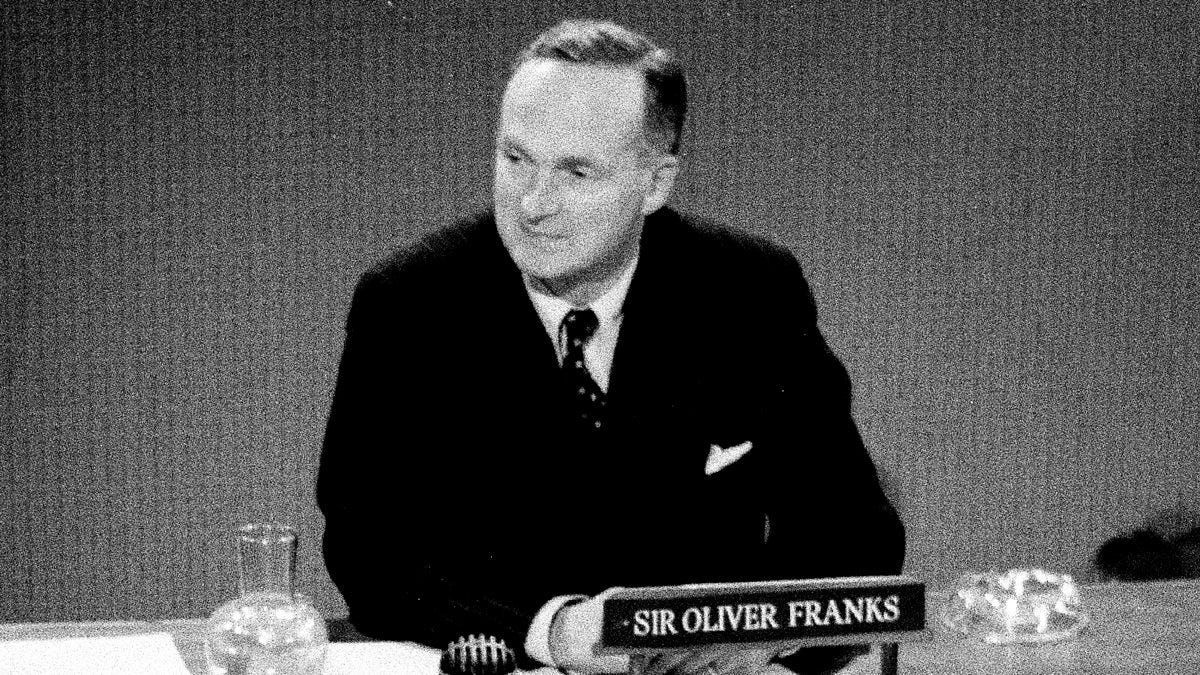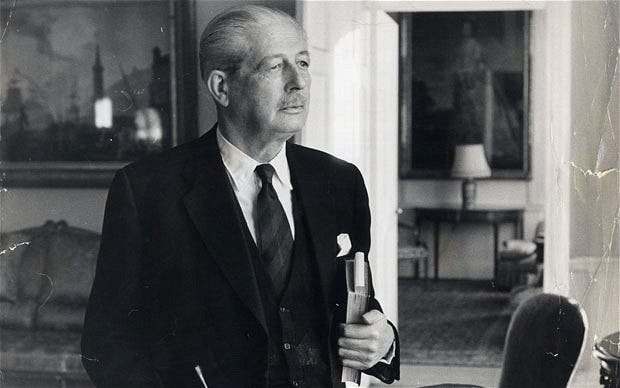The English character: understatement
The idea of 'national characteristics' is fraught and fiercely contested, but I started thinking after a trip into the countryside about the understatedness of the English
On Saturday I was in Suffolk for a wedding: a truly lovely day near Newmarket and heart-warming to see friends embarking on a new chapter of their lives, full of love and optimism, their nearest and dearest assembled to wish them well. For no reason which is deliberate, I barely know East Anglia at all. I have been to Cambridge only twice or three times (though I attended another friend’s also excellent wedding in Trumpington, a couple of miles outside the city), and I have never visited Norwich or Ely or Peterborough or Ipswich or Lowestoft.
(I do know that Norwich was England’s second-largest city until the eighteenth century, thanks to the prosperity afforded by the textile industry, with a population of around 25,000 in 1700. It was dwarfed by London which numbered around 600,000. Katharine of Aragon is buried in Peterborough Cathedral, as was Mary Queen of Scots between 1587 and 1612. Ely Cathedral is known as “the ship of the Fens”. And so on.)
I mention this only because, although guests had come from across the world, the furthest travelled having made the journey from Sydney, it was a delightfully and satisfyingly English event. There was ritual but also informality, solemnity suffused with humour, tradition rubbing shoulders with iconoclasm and, of course, a summer sky with darkened and loured but never turned to rain. I saw people I hadn’t spoken to for years, and, reliably often, the conversation began in the same way, so expressive of the English.
“Lovely to see you! How are you, how have you been?”
”Oh, you know, not bad. Mustn’t grumble.”
Gently heartened and reassured by the atmosphere, it made me recall on the journey back to London several stories of innate and illustrative Englishness, with which many of you will be familiar, but which I thought it worth recounting for this first weekend of June.
Moscow, 1943
The British ambassador to the Soviet Union from 1942 to 1946 was Sir Archibald Clark Kerr, a Foreign Office veteran who turned 60 shortly after he arrived in Moscow. Discreetly but actively bisexual, left-leaning in his politics and a one-time suitor of Lady Elizabeth Bowes-Lyon, later the Queen Mother, he forged a remarkably productive relationship with Joseph Stalin and was integral to the maintenance of the alliance between Britain and America on one side and the USSR on the other.
A year into his tenure in Moscow, on 6 April 1943, he wrote a wryly exhausted letter to his friend the 15th Earl of Pembroke, a colleague in the Foreign Office. The letter read as follows.
My Dear Reggie,
In these dark days man tends to look for little shafts of light that spill from Heaven. My days are probably darker than yours, and I need, my God I do, all the light I can get. But I am a decent fellow, and I do not want to be mean and selfish about what little brightness is shed upon me from time to time. So I propose to share with you a tiny flash that has illuminated my sombre life and tell you that God has given me a new Turkish colleague whose card tells me that he is called Mustapha Kunt.
We all feel like that, Reggie, now and then, especially when Spring is upon us, but few of us would care to put it on our cards. It takes a Turk to do that.
Sir Archibald Clerk Kerr, HM Ambassador
We owe a debt of thanks to Lord Pembroke for filing the correspondence.
Buckingham Palace, 1945
The much-delayed general election of July 1945—the previous contest had been in 1935—resulted in a famous landslide victory for the Labour Party and the ejection from Downing Street after more than five years of Winston Churchill. Many recall it as a shock defeat, maintaining that the received wisdom of the time was that Churchill, as the indomitable and inspirational war leader, would be rewarded by a grateful electorate, but the rudimentary opinion polling of the time had indicated since 1943 that Labour enjoyed a lead, often a substantial one.
This propelled to the premiership Churchill’s former deputy, 62-year-old Clement Attlee, who had led the Labour Party since 1935. He was a respectable, well-educated barrister who had served with distinction during the First World War before being elected MP for Limehouse in 1922. Clever, diligent, shrewd and dryly witty on occasion, he was nevertheless terse to the point of near-silence, practising a devastating economy of words which was partly due to modesty and reticence.
This could be unassuming in a way we cannot imagine in today’s politicians. When he was interviewed by the BBC in the general election campaign of 1950, the interviewer decorously concluded by asking “Is there anything else you’d like to say to the BBC, Mr Attlee?”
“Don’t think so, no,” the prime minister responded.
But every word counted. While many aphorisms were told about him, often slightingly, his own estimation of others could be devastating. Of Churchill he said: “Trouble with Winston. Nails his trousers to the mast. Can’t get down.”
When the election results emerged and it was clear that Attlee would be invited to form a government, he travelled to Buckingham Palace for an audience with the King. George VI was equally inexpressive, shy and prone to a severe stammer which he partially overcame after speech therapy in the 1920s. But he remained a hesitant and reluctant public speaker. Although Attlee and the King were well-acquainted, the combination of two such introverted men militated against free-flowing conversation. After Attlee was shown in to the King’s presence, they stood in silence for a while. This was, remember, an historic moment. It was only 21 years since the country’s first ever Labour government, and Attlee had won the party’s first parliamentary majority. But there was no soaring oratory.
“I’ve won the election,” said Attlee eventually.
“I know,” replied the King. “I heard it on the Six O’Clock News.”
So began one of the most influential, reforming governments in British history. Not with a bang, nor even a whimper, but a gentle clearing of the throat.
Washington D.C., 1948
This may be an apocryphal tale, but it is too lovely to dismiss and, even if it is not true, it is indicative and was taken as if it could be true. In 1948, following the retirement of the British ambassador to the United States, Sir Archibald Clark Kerr (see above), the foreign secretary selected as his replacement Sir Oliver Franks, at that point provost of The Queen’s College, Oxford. Franks was a moral philosopher by discipline but had been recruited into the civil service during the Second World War, eventually serving as permanent secretary of the Ministry of Supply. He was only 43, an admirer of Attlee, on familiar terms with Churchill and Jawaharlal Nehru, the first prime minister of India, and respected and admired by Ernest Bevin, Labour’s foreign secretary.
In the period running up the Christmas 1948, a radio station in Washington approached the ambassadors of various countries and asked them what their most desired Christmas gift would be. The plan was to broadcast a selection of the responses in a special seasonal programme.
Most of the plenipotentiaries gave ideologically appropriate, if trite, responses. The French ambassador wished for “peace throughout the world”. His Soviet counterpart, predictably, wanted to see “freedom for all people enslaved by imperialism”. Sir Oliver’s answer betrayed a rather different approach to the whole basis of the question.
“Well, it’s very kind of you to ask. I’d quite like a small box of crystallised fruit.”
Some far corner of a foreign field which is forever England.
London, 1962
John Vassall, born 100 years ago this September, is not as often remembered as John Profumo but was often paired with him in representing the scandal-ridden nature of the Conservative government in the early 1960s. After serving in the Royal Air Force during the Second World War, he became a clerical officer at the Admiralty in 1948, and worked diligently but unspectacularly in a series of quotidian administrative posts, including on the staff of the British naval attaché in Moscow from 1952 to 1956. Vassall was lonely and vulnerable, because he was homosexual at a time when it was still a criminal offence, and through a Polish colleague in the embassy he became involved in Moscow’s clandestine gay community. In 1954, at a party, he was encouraged to drink heavily, leading to his being photographed by the KGB in compromising positions with a number of young men. It was a classic honeytrap.
Equipped with this leverage over Vassall, the Soviet intelligence agency persuaded him to work for them and supply information from his duties in the embassy. In 1956, he was posted back to London, working for a time in the Naval Intelligence Division and then in the private office of one of the junior ministers, Tam Galbraith, civil lord of the Admiralty. In 1961, a KGB officer, Major Anatoliy Golitsyn, defected to the United States, and Vassall was ordered to stop his illegal activities for fear that Golitsyn might betray him. But suspicion had already been aroused: Vassall lived a lifestyle unsupportable on his civil service salary, spending what was later estimated to be around £3,000 a year when he was only paid £750, occupying a luxurious flat in Dolphin Square in Pimlico, enjoying frequent foreign holidays and, it was rumoured, owning 36 Savile Row suits.
John Vassall was arrested and charged with espionage on 12 September 1962. He confessed and was sentenced to 18 years in prison, being released on parole on 1972. Before the arrest, the cabinet secretary, Sir Norman Brook, had felt it his duty to inform Prime Minister Harold Macmillan that a civil servant in a sensitive government department had been, as he described it, selling state secrets in clubs around Victoria.
Macmillan, then 68 and firmly entrenched in his pose as an unflappable Edwardian grandee, firmly rejected the situation Brook had set out. His mind must have leafed through his clutch of memberships, of the Carlton Club, the Turf, Pratt’s, the Beefsteak, Buck’s, the Athenaeum, the Guards Club.
“Nonsense. There are no clubs around Victoria.”
The British Army, 1945 to date
Towards the end of the Second World War, as the 8th Army fought its way agonisingly up the Italian peninsula, a signwriter put up a notice by the side of a mani supply route to encourage and cheer his fellow soldiers and extol the soothing power of that classic English narcotic, tea. “If in doubt, brew up,” it read. The only way to heat water for tea, however, was using small portable stoves or placing a mug directly over a smelly Hexamine solid fuel tablet. This required the men to stop and risk betraying their position.
Just before the end of the war, the army began to roll out the very first Centurion main battle tanks. The model would be the mainstay of British armoured forces until replaced by the Chieftain in the 1960s, and was purchased and deployed around the world by 20 different countries (a handful, heavily modified, remain in service with the armies of Israel, Jordan and South Africa). One innovation of the Centurion, among many, was that it had installed in the turret a Vessel Boiling Electric (or “BV”), a tank which boiled and dispensed water so that the crew could make tea inside the vehicle without stopping.
Almost every armoured vehicle operated by the army since then has been equipped with a water boiler. A junior member of the crew is usually appointed “BV commander” and made responsible for brewing and dispensing tea. Some things, it seems, are absolute essentials.










The Oliver Franks story is not apocryphal, but is characteristic of my much-loved and very unassuming grandfather. We used to receive piles of boxes of crystallised fruits every Christmas from well- wishers who had appreciated his lack of grandiosity. Thank you - I enjoyed reading all the stories in your piece.
Challenger MBT used today by British Army have boiling vessels for tea. Just as His Majesty's Ships have alcohol, much to the jealousy of our American allies. Indeed without that the USN would've barred RN from fighting in Pacific in ww2 apparently. Fact out fleet carriers had steel decks and Japanese kamikaze planes literally bounced off may have helped a bit too.
I reminded of the story when USS New Jersey, huge US battleship was running alongside HMS Rodney in latter part of ww2. NJ announced USN was now largest navy in the world. Rodney replied " Congratulations. How does it feel to be second best navy in world". Good afternoon.